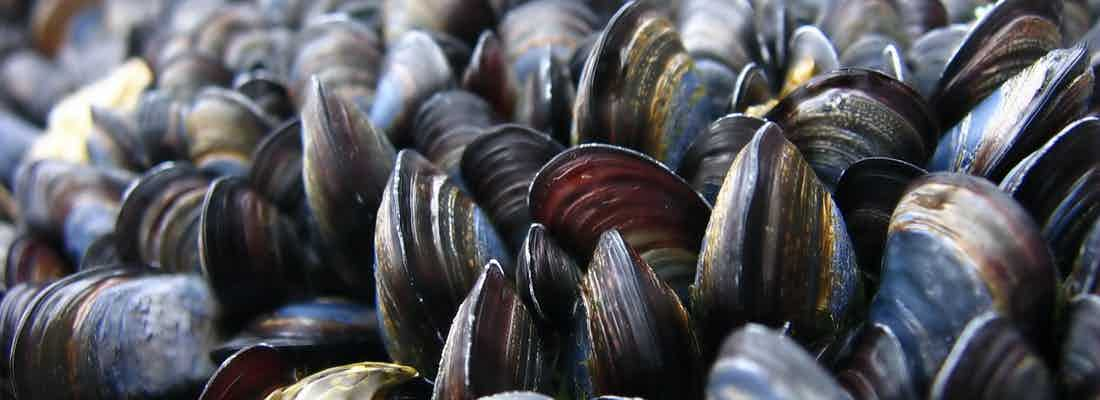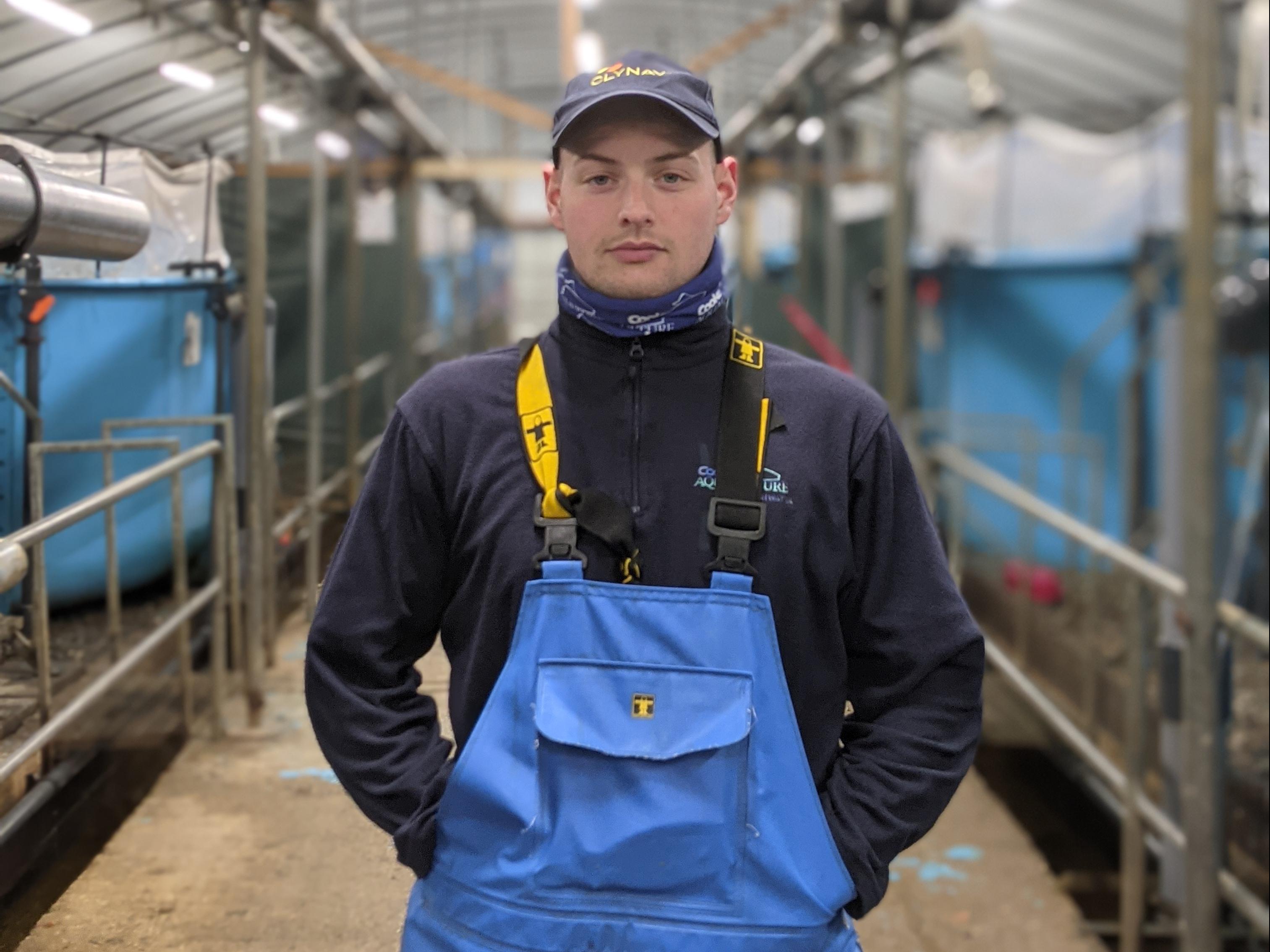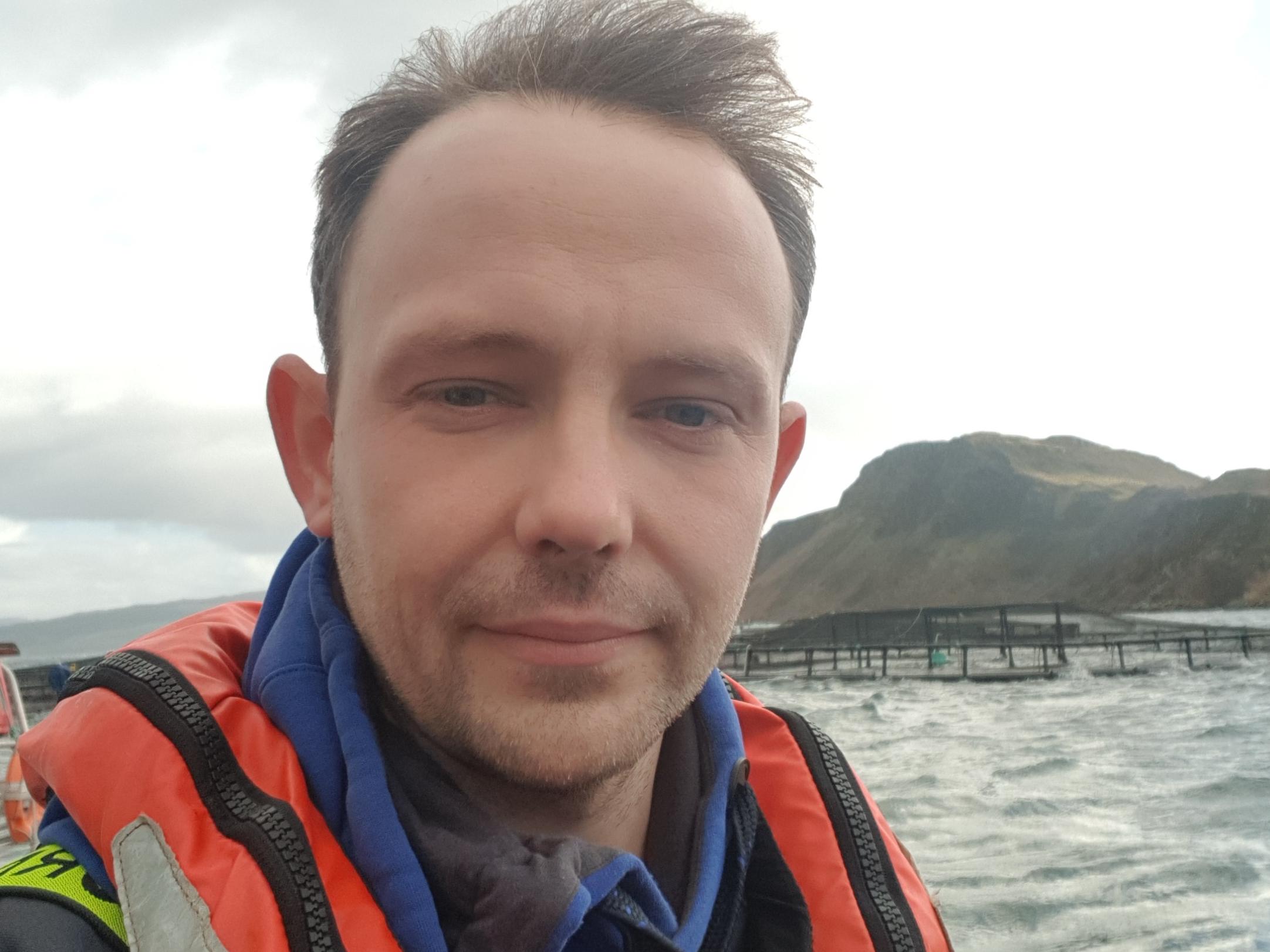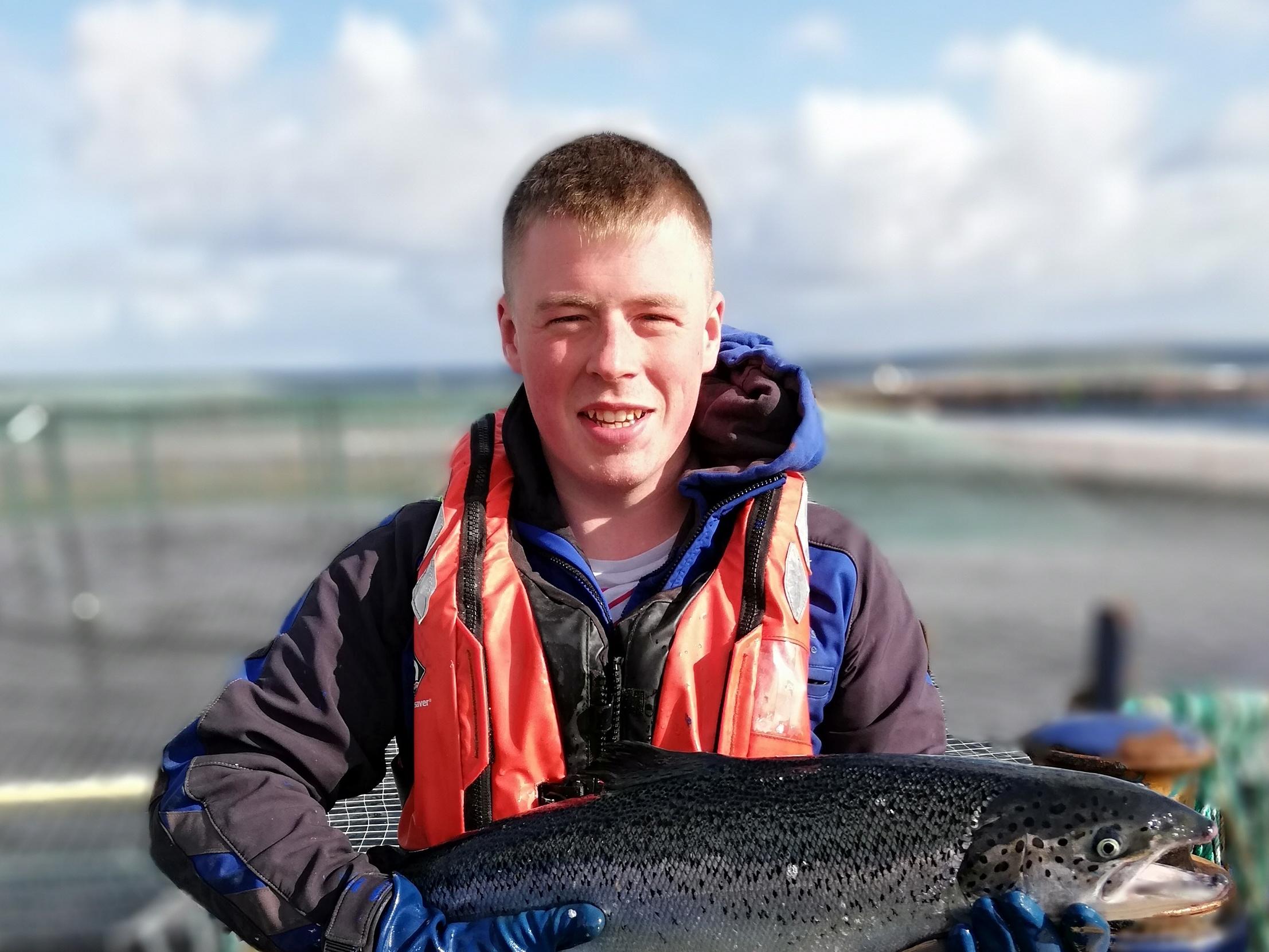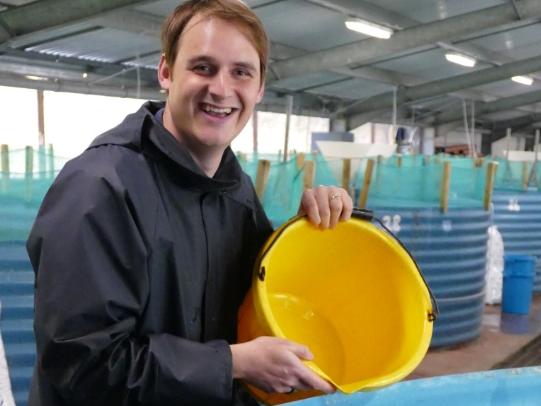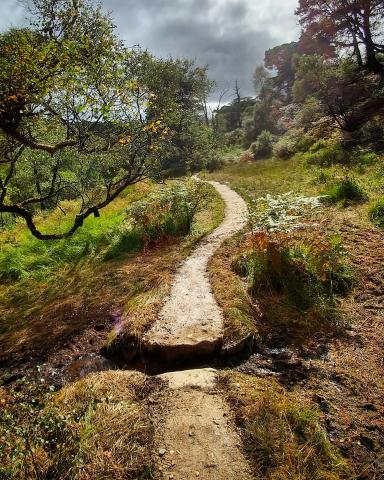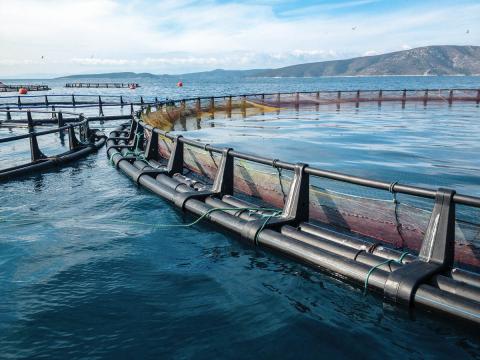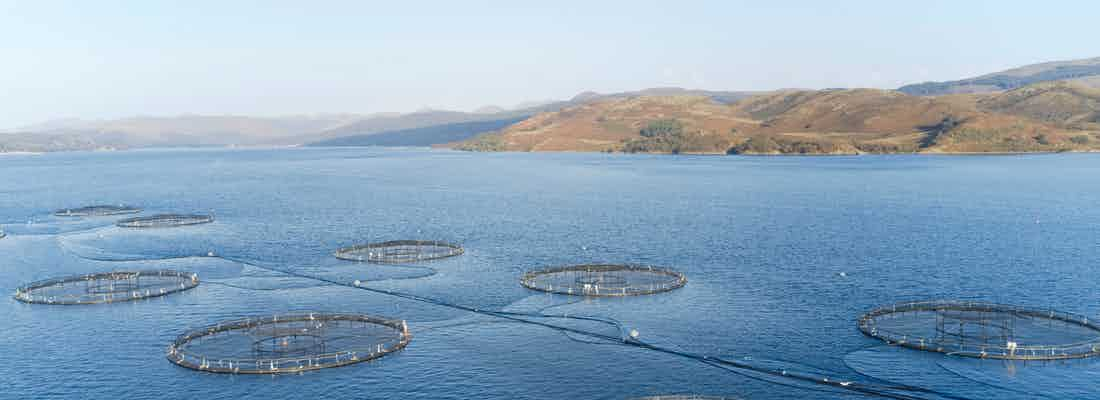
Aquaculture is the farming of freshwater and marine plants and animals, including salmon, sea bass, trout, carp, turbot, halibut, mussels, oysters and seaweed.
The industry is currently worth more than £620 million to the UK’s GDP, so if you like the idea of working outdoors, developing new skills and keeping up with the latest science and technology, then a job in aquaculture could be for you.
Aquaculture is fast-paced, innovative and full of opportunities for enthusiastic, hard-working people. Whether you decide to do a degree at university or a Modern Apprenticeship in the workplace, a qualification in aquaculture will help improve your career prospects across Scotland and the rest of the world. It offers something for everyone across all ages, providing good jobs in some beautiful parts of the country.
Find out more about the variety of jobs available in Scottish finfish aquaculture by clicking on the arrows or icons in our presentation below.
What's involved in growing shellfish in Scotland? Jim Cameron, one of the Sustainable Aquaculture Innovation Centre's Summer Interns 2020, created this video highlighting the career opportunities in the Scottish shellfish aquaculture sector:
Have a look at some of the the aquaculture jobs that you could do:
MSc Aquatic Veterinary Studies
MSc Sustainable Aquaculture
MSc Aquatic Pathobiology
MSc Aquaculture, Environment and Society
MSc Applied Marine and Fisheries Ecology
NPA Local Food Production
Biologist
Biologists play an important role as experts in environmental conservation, fisheries management and aquaculture. This ranges from understanding and managing the growth of species on land and in hatcheries, farms and river systems, to communicating the impact those operations will have on local surroundings.
They are responsible for the health and welfare of stock on sea and in fresh water.
Biologists must apply their scientific knowledge to monitoring the health of the aquatic species being grown and be able to recommend ways to improve efficiency.
Working Conditions
Biologists often use different methods of analysis, including sampling surveys, water quality determinations, environmental impact studies and fishery operation inspections.
Salary
Salaries vary with experience, qualifications and between companies, but here's a guide to what you can expect.
£25,000
£44,000
Getting started
You may not need any specific environmental knowledge to find employment as a biologist, but it will help your application. Good communication and organisational skills are particularly important.
What experienced workers can do
- Organise and co-ordinate events
- Address the diverse needs and expectations of customers
- Assess site resources
- Research and prepare environmental interpretive activities
- Monitor the production and use of interpretive media
- Facilitate outdoor experiences to meet the recreational/education needs of the participants
- Promote responsible public use of outdoor sites
- Assist with fundraising planning
- Lead the work of volunteers
- Negotiate and secure sources of funding.
Personal qualities you should have
- Be able to interpret data
- Be able to plan, undertake and evaluate surveys
- Be able to collect and report on a range of fish data
- Supervise fisheries research projects
- Be able to manage others
- Manage a budget
- Use technology to capture fish data.
Next steps
A biologist may look to progress into a specialist area or choose to become a consultant offering advice.
Useful links
Loch Lomond and the Trossachs National Park
Scottish Environment Protection Agency
Fish Farm Site Manager
The Site Manager, supported by the Assistant Site Manager or Senior Marine Operative, is responsible for stock management, personnel management, staff development and the promotion of health and safety within the workplace. They must demonstrate commitment to the safety and welfare of their staff, to the livestock within their control and to the environment in the local community and beyond.
Working Conditions
Fish farms operate seven days a week, so farmers usually work flexible hours based around the jobs that need completing at different times of the year. In larger farms, they are likely to work on a rota system with other members of staff. This will include early mornings, evenings and weekends. There may be opportunities for both full-time and part-time working.
Much working time is spent outdoors in all weathers. Many fish farms are relatively remote, so a driving licence is needed. Housing is often provided with the job.
There is a considerable amount of record keeping involved so IT skills are essential.
Salary
Salaries vary with experience, qualifications and between companies, but here's a guide to what you can expect.
£32,000
£38,000
Getting started
Experience is an advantage, but training is usually provided.
What employers are looking for
- Enthusiasm
- Motivation
- Leadership and management skills
- Strong planning, organisational and communication skills
- Understanding of associated software systems
What experienced workers can do
- Supervise staff
- Maintain a safe work environment and environmentally friendly work practices
- Understand feed and stock management
- Harvesting and grading planning
- Understand and comply with needs of audit.
Personal qualities you should have
- Initiative
- Able to work with others
- Be self-motivated
- Flexible
- Able to solve problems
Next steps
Large fish farms may offer promotion and there may be opportunities to specialise. Experienced managers may move into other work, such as technical sales, consultancy, teaching, or as an adviser.
It may also be possible to work with private companies or co-operatives and on contract with others in the food supply chain, such as supermarkets.
There may be some opportunities to work abroad.
Useful links
Institute of Aquaculture - University of Stirling
Scottish Salmon Producers Organisation

